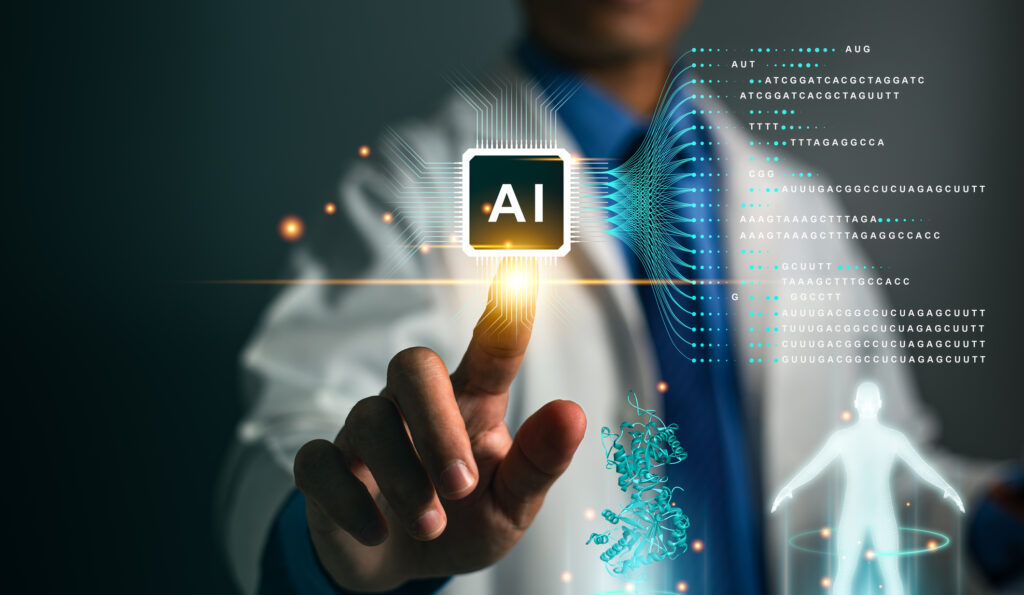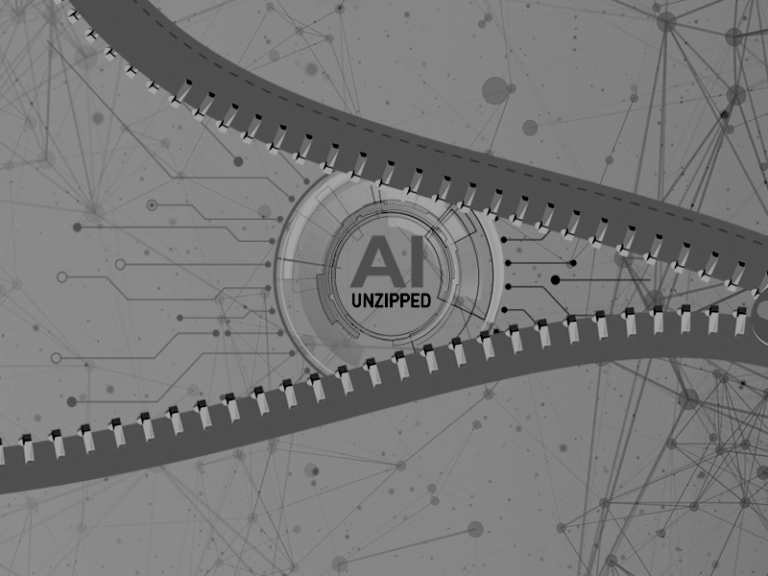The traditional sales process for medical technologies is slow and unstructured at best. Sales teams sift through tons of information to identify potential customers, understand their needs, and more importantly, the needs of their patients. They juggle multiple channels of communication to reach potential clients. They then have to pore through endless additional amounts of data to develop their sales approach. Finally, they are ready to approach potential customers and make the sale. The process is both exhausting, time consuming, inconsistent, and highly people-dependent.
AI technology has the power to supercharge the laborious, data-heavy sales process, acting like a sales manager’s digital assistant. AI algorithms can analyze vast amounts of data to identify the relevant information to benefit the sales teams, improving productivity, creating higher conversion rates, and improving customer satisfaction–while ensuring legal compliance in regards to privacy.

 Maximize Lead Potential with AI-Powered Insights
Maximize Lead Potential with AI-Powered Insights
How well do you really know your prospects? Can you imagine the impact of instantly identifying and prioritizing leads with the highest conversation potential?
Sales teams start with a huge pool of prospects– and analyzing them individually takes significant bandwidth. AI-powered lead scoring algorithms can quickly analyze prospect data (i.e. behavior, demographics, engagement level, procedure data) to determine their likelihood of conversion, streamlining qualification and allowing sales to focus their time on solid prospects.
Once prospects are identified, AI can then help sales teams create personalized outreach campaigns tailored to the unique interests of each prospective customer and recommend the most effective communication channels and messaging strategies for engaging them on a personal level.
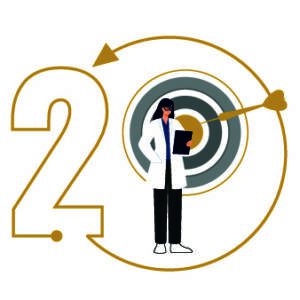 Power Your CRM with AI: Personalize, Predict, Prosper
Power Your CRM with AI: Personalize, Predict, Prosper
Is your current CRM system delivering the insights you need, or are you missing opportunities to connect with customers on a personal level?
AI-driven CRM systems can leverage AI to automatically update and enrich customer data, ensuring accuracy and consistency. They can also provide valuable insights by analyzing customer behavior, enabling sales teams to tailor sales strategies to specific segments. Selling usually involves a “messy” string of communications: emails, phone conversations, video calls. Artificial intelligence is designed to make sense of such unstructured data. AI models can detect intent data, for example even faint changes of tone or other signs of disinterest or lack of trust, can give sales reps the opportunity to quickly pivot their strategy.
Another time saver: sales teams no longer have to spend a significant amount of time with follow-ups. AI can send personalized messages and reminders to prospects based on predefined triggers and customer preferences, increasing the probability of converting prospects to clients.
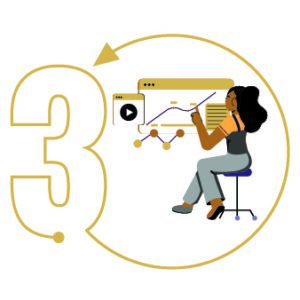 Forecast With Precision
Forecast With Precision
Do your forecasts feel like guesswork? AI helps unlock subtle patterns from perspectives perhaps you haven’t even considered.
Over time, sales reports have transitioned from passive, historical information to forward-looking diagnostic tools. Predictive analysis makes these reports even more powerful. Predictive analytics can use historical sales data and market trends to forecast future sales with greater accuracy, helping businesses anticipate demand, plan resources effectively, and adjust strategies to meet market conditions.
Likewise, predictive analytics can provide valuable information for decision-making. For example, it can monitor real time performance, allowing businesses to track sales metrics and KPIs continuously, and enabling them to identify issues and opportunities as they arise, adjust their strategies, optimize performance and maximize revenue potential.
 Automate Sales Processes to Unlock Efficiency
Automate Sales Processes to Unlock Efficiency
Consider the routine tasks that consume your team’s productivity . Sales teams are labored with exhaustive amounts of administrative work which continues to accumulate over time. The larger your organization scales, so does the snowball effect of endless documentation, approvals, and compliance reporting. What if this administration creep could be reversed, and repetitive tasks could be automated , freeing up your team to focus on closing deals?
To answer these questions, let’s break down how generative AI can revolutionize the traditional product development workflow for your enterprise across three essential phases: designing and building, testing and launch, and performance and scale.
-
Streamline routine tasks
When routine tasks, such as lead routing, task assignment, and follow-up reminders are automated, sales teams can focus on high-value activities, such as building relationships with prospects and closing deals. The biggest opportunities for AI to automate facilitation are in customer support and contract management.
-
Customer service chatbots
AI-powered sales chatbots can provide round-the-clock customer support, assisting prospects and customers with inquiries, product information, and troubleshooting. By leveraging large language models (LLM), AI chatbots can engage in personalized conversations, qualify leads, and route inquiries to the appropriate representative.
-
Automated proposal generation
Last but not least, Automated proposal generation tools can use AI to create personalized proposals quickly and accurately, based on predefined templates and customer data. AI-powered contract management systems can streamline the contract lifecycle, from creation to negotiation and signing, reducing the risk of manual errors and speeding up the sales process.
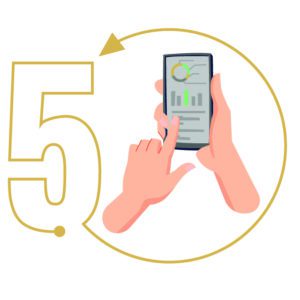 Achieve Peak Performance With AI-Driven Training
Achieve Peak Performance With AI-Driven Training
Do your sales reps receive training that truly matches their individual needs and performance gaps? Artificial intelligence can help build a strong sales team through tailored training–and ensure performance through the analysis of continuous feedback loops.
-
AI-driven sales coaching and training platforms
AI-driven sales coaching platforms utilize AI to analyze sales performance data and provide personalized coaching and training to sales reps. By leveraging AI, sales coaching platforms can identify areas for improvement and deliver targeted training content to help sales reps enhance their skills and achieve better results.
-
Performance analytics for identifying training needs
Performance analytics tools use AI algorithms to analyze sales performance data and identify patterns and trends that indicate areas for improvement. By utilizing performance analytics, sales managers can pinpoint specific training needs and develop targeted training programs to address skill gaps and enhance overall sales effectiveness.
-
Continuous learning through AI-powered feedback and recommendations
Managers used to have to listen to hours of meetings and reports to identify coaching opportunities. Now, AI-powered feedback systems provide real-time feedback and recommendations to sales reps based on their performance and interactions with prospects and customers. By continuously analyzing sales activities and outcomes, AI-powered feedback systems help sales reps learn from their experiences, adapt their strategies, and improve their performance over time.
 Safeguard Your Sales Data Integrity
Safeguard Your Sales Data Integrity
While AI offers numerous opportunities for improving sales performance and efficiency, challenges such as data privacy concerns, algorithm bias, and integration complexities need to be addressed upfront.
Artificial intelligence runs on large swaths of data–which naturally carry privacy concerns. Prioritizing data privacy and security is paramount in AI-driven sales processes to safeguard sensitive information and maintain customer trust. Sales teams must implement robust security measures and encryption protocols to help ensure the confidentiality and integrity of data throughout the sales cycle.
Likewise, businesses are ethically bound to uphold transparency, fairness, and accountability in their AI algorithms and practices. Adhering to ethical guidelines and established regulations (GDPR, HIPAA) can help mitigate potential biases and ensure legal compliance, respecting the rights of all participants.
What Does the Future Hold For AI in Medical Sales?
While sales teams have historically been slow adopters of new technologies, medical sales teams are especially well primed to become a leading adopter of artificial intelligence.
With the rapid commercialization of generative AI, advancements that benefit sales teams directly are quickly emerging. AI-driven sales presents opportunities for businesses to gain a competitive edge, enhance customer experiences, and unlock new revenue streams through data-driven insights and automation.
Recommendations for staying ahead:
- Invest in ongoing education and training to equip sales teams with the skills and knowledge needed to leverage AI effectively in sales processes.
- Foster a culture of innovation and experimentation, encouraging the exploration of new AI technologies and strategies to adapt to changing market dynamics.
- Collaborate with AI vendors and industry experts to stay informed about the latest developments and best practices in AI-driven sales. Continuously monitor and evaluate performance metrics to identify areas for improvement and optimize AI-driven sales strategies accordingly.
- Rely on human review. No model is without risk of error, but those risks are lessened the more the models are fine-tuned to the context of your company. Data, training, and feedback all help the model improve. In high-risk situations , AI outputs will still need to be reviewed and approved by a human before implementation.
AI’s transformative impact on medical sales is fundamentally reshaping how the industry engages with customers. As AI continues to advance, its role in sales will only become more significant, enabling businesses to gain deeper insights into customer behavior, anticipate needs, and personalize interactions at scale. Embracing AI-driven sales strategies not only positions businesses for success in the short term but also prepares them to thrive in the dynamic and increasingly AI-driven future of sales.
Companies like Microsoft and Salesforce are already making waves with their own AI-assisted sales platforms, Viva Sales, and Einstein GPT. These out-of-the-box solutions are helping sales departments tighten up their processes– but custom solutions, tailored to your business needs and objectives, will give you the most flexibility to maximize the value of your investment.
Are you interested in adding AI to your sales organization?
Let’s explore how implementing AI-driven strategies can optimize your sales teams productivity, boost conversion rates and enhance customer satisfaction. Contact us today to unlock the potential of AI in transforming your sales organization!
ABOUT THE AUTHOR

Alicia Bruning, Senior Digital Marketing Coordinator, has over 5 years of experience. Before Dialexa, she worked for various SAAS companies, innovating new ways to bring in revenue, deepen customer relationships, and create new content. Her biggest passion is providing customers and prospects with an unmatched experience while serving ads that leave an impression.

